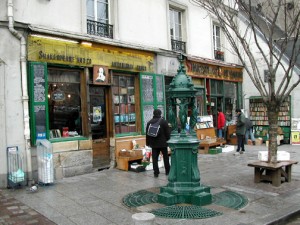2013, the year Love became the official language of Minnesota This year, my two dear friends Anne and Anna were married in Minnesota, after eighteen happy years together. I have known Anne since college, and so I was involved in all the preparations: buying dresses, agonizing over shoes, consulting on matters of etiquette, discussing flowers and music, reception venues and invitations.
Despite the groundbreaking political context, the preparations were incredibly familiar. Just as in every other wedding, the couple kept some traditions and reinvented others. Anne and Anna were married in a church, with loved ones reading poems and bible passages, and with a sermon dedicated to their union. There was beautiful music. A flower girl heralded their procession. As their loved ones beamed proudly, they were given away by family members. Later we celebrated with an elegant buffet reception. In a nod to modernity (and the environment) Anne and Anna decided to go with emailed invitations instead of paper. The reception included karaoke.
In fact, while there were significant legal and cultural battles that had to be won for this ceremony to happen, there were no important traditions that need to be reinvented for a same-sex wedding. Here are the ones that Anne and Anna had to change: 1) Instead of one bridal dress, there were two lovely cocktail frocks. And 2) Well, there is no number two. Just the dress. Every other change was a matter of language.
After all, the traditional promise--and the central idea behind every wedding ceremony--is that the couple vow to love and honor one another against all odds, in a sickness and in health, for richer and for poorer, something that Anne and Anna had already done for nearly two decades.
The rewording (spouse instead of husband, woman for man) in the ceremony didn't alter that profound vow. When my husband referred to himself as a "groomsman," I reminded him that he was a "bridesman." He loved that. "It sounds almost medieval," he said. "Like I'm the member of a royal wedding party."
And it did feel like the wedding of royalty, because it was both an intimate celebration and a public joy. Anne and Anna's union represents the happiness of so many other people. Not only the many friends they have gathered around them during their long and loving partnership, but the thousands of Minnesotans who are now free to marry.

